-
New technology to detect previously undetectable fecal contamination in water
Technology capable of sampling water systems to find indicators of fecal matter contamination that are thousandths and even millionths of times smaller than those found by conventional methods is being developed by researchers. The researchers have developed an ultrasensitive detection method that can detect molecules associated with human and animal fecal matter in water systems. These extremely small indicators, he explains, have been traditionally difficult to detect but can signal greater levels of contamination, which can lead to illness and even death.
-
-
South Carolina withdraws MOX lawsuit against DOE, NNSA
The state of South Carolina said Friday that it would not go ahead with its lawsuit against the Department of Energy and the National Nuclear Security Administration (NNSA) in support of the Savannah River Site’s Mixed Oxide (MOX) Fuel Fabrication Facility. The dismissal of the lawsuit follows an announcement last Tuesday by the DOE and NNSA that construction will continue on the MOX facility through the end of the fiscal year. The two agencies made it clear, though, that they still plan to mothball the plant.
-
-
As fracking activity grows in Mexico, so does the number of fracking-induced tremors
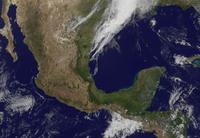
Mexico has the fourth largest amount of recoverable shale gas in the world, with 681 trillion cubic feet. As fracking activity has increased in the state of Nuevo Leon, so have the number of tremors. Between January and mid-April, forty-eight tremors, some reaching a magnitude of roughly 4.3, were recorded across the state of Nuevo Leon, compared to two tremors in the same period last year.
-
-
Ice melting in East Antarctica may lead to unstoppable sea-level rise
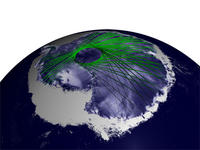
The melting of a rather small ice volume on East Antarctica’s shore could trigger a persistent ice discharge into the ocean, resulting in unstoppable sea-level rise for thousands of years to come, a new study finds. East Antarctica’s Wilkes Basin is like a bottle on a slant, say the study’s authors. Once uncorked, it empties out. The basin is the largest region of marine ice on rocky ground in East Antarctica.
-
-
Energy-subsidy reform can reduce carbon emissions, add years to oil exports: study
Reform of energy subsidies in oil-exporting countries can reduce carbon emissions and add years to oil exports, according to a new study. The study reviews the record of energy-subsidy reforms and argues that big exporters should reduce energy demand by raising prices, and that this can be done without undermining legitimacy of governments that depend on subsidies for political support
-
-
Lawmakers urge NRC not to exempt shut-down nuclear plants from emergency, security regulations
Lawmakers are urging the U.S. Nuclear Regulatory Commission (NRC) to halt exemption of recently- shuttered nuclear power plants from emergency-planning and security regulations. The lawmakers are especially concerned about the nuclear waste which will continue to be stored on the grounds of shut-down nuclear plants, saying that the stored radioactive waste continues to be a security threat whether or not the plant itself is still operational.
-
-
Switching from cattle fields to “carbon farms” to tackle climate change

Changing cattle fields to forests is a cheap way of tackling climate change and saving species threatened with extinction, a new study has found. The main use of land in communities the western Andes of Colombia is cattle farming, but a new study found farmers could make the same or more money by allowing their land naturally to regenerate. Researchers report that under carbon markets designed to stop global warming, these farmers could get paid to change the use of their land from growing cows to “growing carbon” — receiving around $1.99 per ton of carbon dioxide the trees remove from the atmosphere.
-
-
Russia may launch crippling cyberattacks on U.S. in retaliation for Ukraine sanctions
U.S. officials and security experts are warning that Russian hackers may attack the computer networks of U.S. banks and critical infrastructure firms in retaliation for new sanctions by the Obama administration, imposed in response to Russia’s actions in Ukraine. Cybersecurity specialists consider Russian hackers among the best at infiltrating networks and some say that they have already inserted malicious software on computer systems in the United States.
-
-
Innovative U.S. cybersecurity initiative to address cyberthreats
Cyberattacks on computer networks around the world reached 1.7 billion in 2013, up from 1.6 billion in 2012. The administration’s 2012 Enhanced Cybersecurity Services(ECS) program, launched to protect the private sector from hackers by letting approved companies access classified information on cyber threats and sell cybersecurity services to critical infrastructure targets, is still in its early stages fourteen months after its launch.
-
-
Wetland preservation is good business
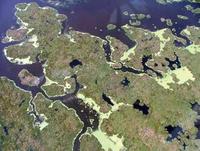
A recently published study is making the case for wetland preservation by highlighting the economic incentives that such preservation could provide to urban centers.Infrastructure investment in urban waterfronts could soon be seen as one of the best economic decisions a city could make. The National Oceanic and Atmospheric Administration says that “$1 million invested in coastal restoration creates 17.1 jobs, compared to just 8.9 jobs for every $1 million invested in oil and gas development.”
-
-
Longer periods of tornado activity are more destructive, but also more predictable
Significant tornado outbreaks, and especially strong tornadoes, are more likely occur within periods of activity lasting three or more days, according to a new study. The study examined thirty years of U.S. weather records and found that an outbreak of twenty or more reported tornadoes had a 74 percent probability of occurring during a period of tornado activity lasting three or more days. During those same periods, a tornado rated 3 or higher on the Enhanced Fujita scale had a 60 percent probability of hitting.
-
-
Producing more oil by capturing carbon
Any method that leads to the production of more oil seems counter to the prevailing wisdom on climate change that says use of more greenhouse-gas-emitting fuel is detrimental. There is one oil-recovery process, however, which some say could be part of the climate change solution and now unites unlikely allies in industry, government and environmental groups.
-
-
More crude oil shipments by rail mean more accidents, but security measures lag

American rail companies have long operated under federal laws, making it difficult for local officials to gather information on cargo and how rail companies select their routes. An increase in the number of trains transporting crude oil, accompanied by a series of derailments and explosions, has highlighted the dangers of transporting hazardous substances by rail.In February, the Department of Transportation announced that railroads had voluntarily agreed to apply the same routing rules to oil trains that they currently apply to other hazardous materials. Critics say more needs to be done.
-
-
Oklahoma worries that fracking-induced earthquakes threaten the state’s bridges
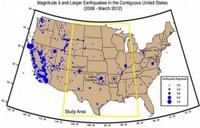
Many residents in Oklahoma are questioning whether hydraulic fracking is to blame for the sudden increase in earthquakes, but for transportation officials, the security of the state’s 6,800 bridges is the immediate concern. There are 468 bridges in Oklahoma which are classified as “structurally deficient,” and most were not built with frequent earthquakes in mind. Earthquakes have become so common, however, that inspectors have had to inspect bridges several times a week.
-
-
Florida moves to protect coastal roads from sea level rise
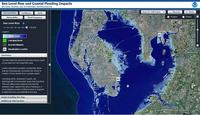
Alton Road is a few blocks west of the Atlantic Ocean, and is Miami Beach’s lowest point, at 2.8 feet above sea level. Trouble is, as a result of sea level rise, inundation tide now routinely reaches 3.4 feet above sea level. Geologist have long warned of the impact sea level rise would have on Florida’s coastal infrastructure, and they view Alto Road as Ground Zero, saying that at some point in the near future, water from flooding will not recede. The Florida Department of Transportation (FDOT) is taking steps to protect coastal transportation infrastructure from sea level rise.
-
More headlines
The long view
Helping Strengthen America’s Critical Infrastructure
Everyday life depends on a robust infrastructure network that provides access to running water, communications technology and electricity, among other basic necessities. The experts who keep our national infrastructure secure and resilient also need a strong network to share their knowledge and train the next generation of professionals capable of solving complex infrastructure challenges.
AI and the Future of the U.S. Electric Grid
Despite its age, the U.S. electric grid remains one of the great workhorses of modern life. Whether it can maintain that performance over the next few years may determine how well the U.S. competes in an AI-driven world.
Using Liquid Air for Grid-Scale Energy Storage
New research finds liquid air energy storage could be the lowest-cost option for ensuring a continuous power supply on a future grid dominated by carbon-free but intermittent sources of electricity.
Enhanced Geothermal Systems: A Promising Source of Round-the-Clock Energy
With its capacity to provide 24/7 power, many are warming up to the prospect of geothermal energy. Scientists are currently working to advance human-made reservoirs in Earth’s deep subsurface to stimulate the activity that exists within natural geothermal systems.
Experts Discuss Geothermal Potential
Geothermal energy harnesses the heat from within Earth—the term comes from the Greek words geo (earth) and therme (heat). It is an energy source that has the potential to power all our energy needs for billions of years.
